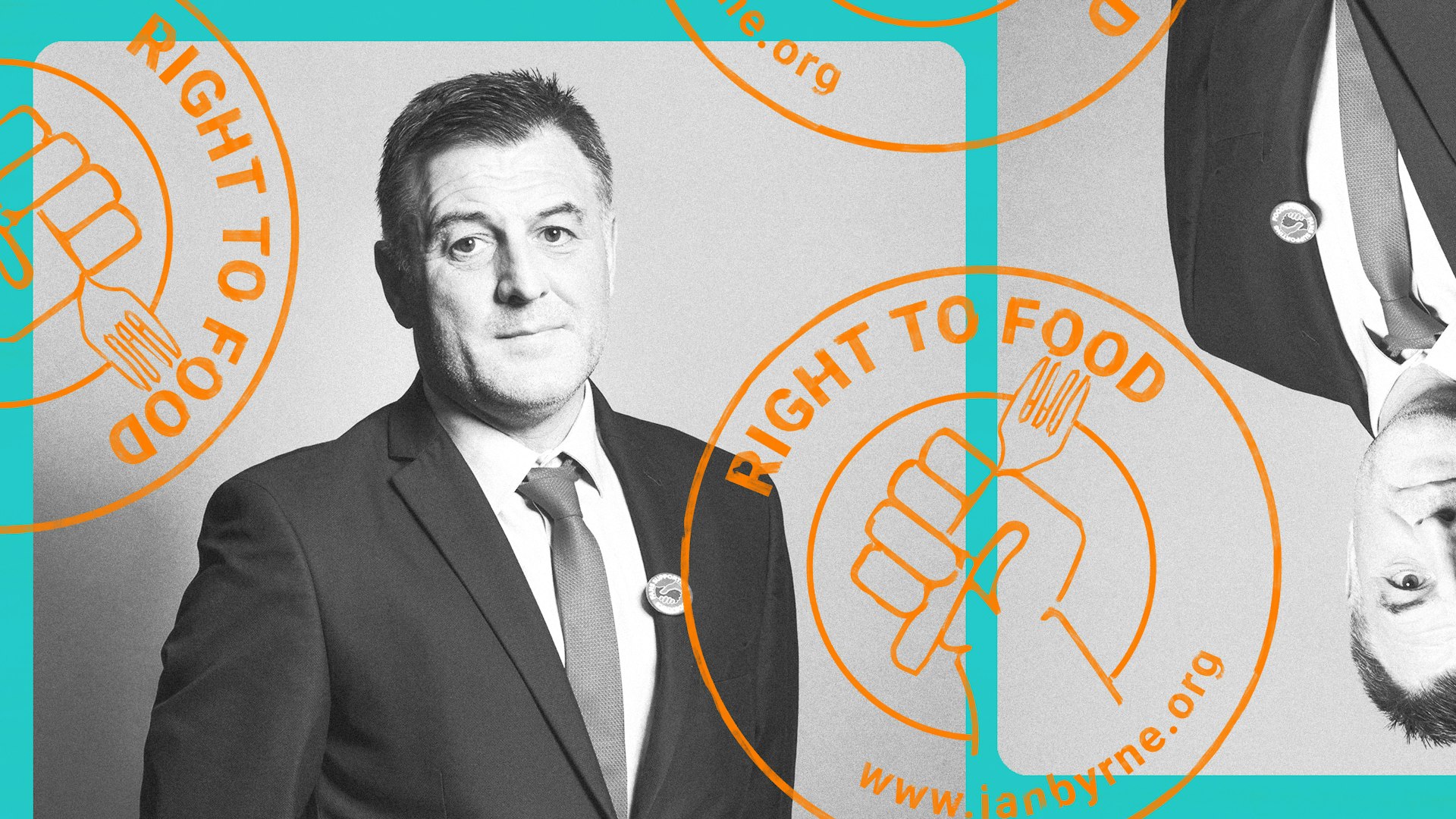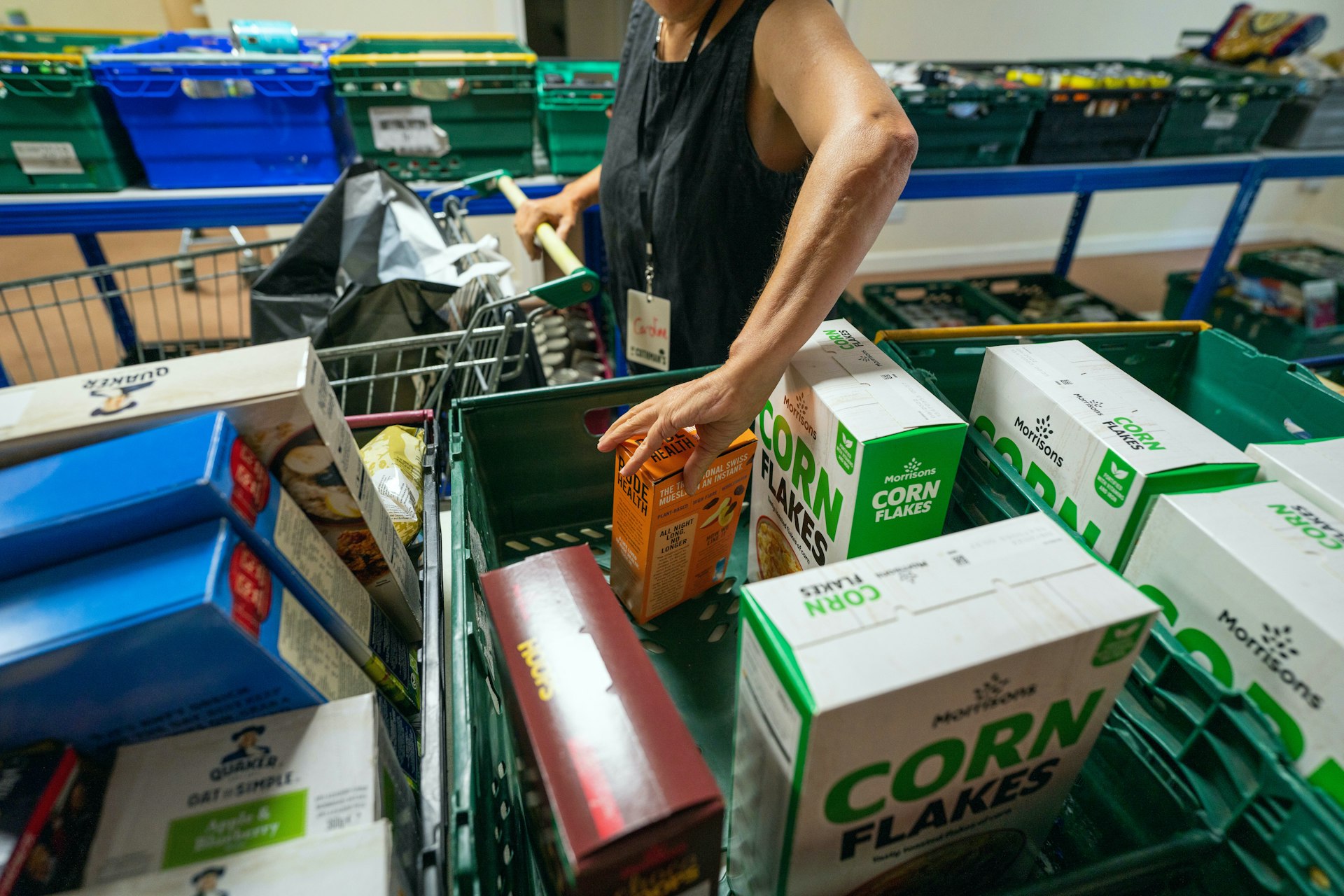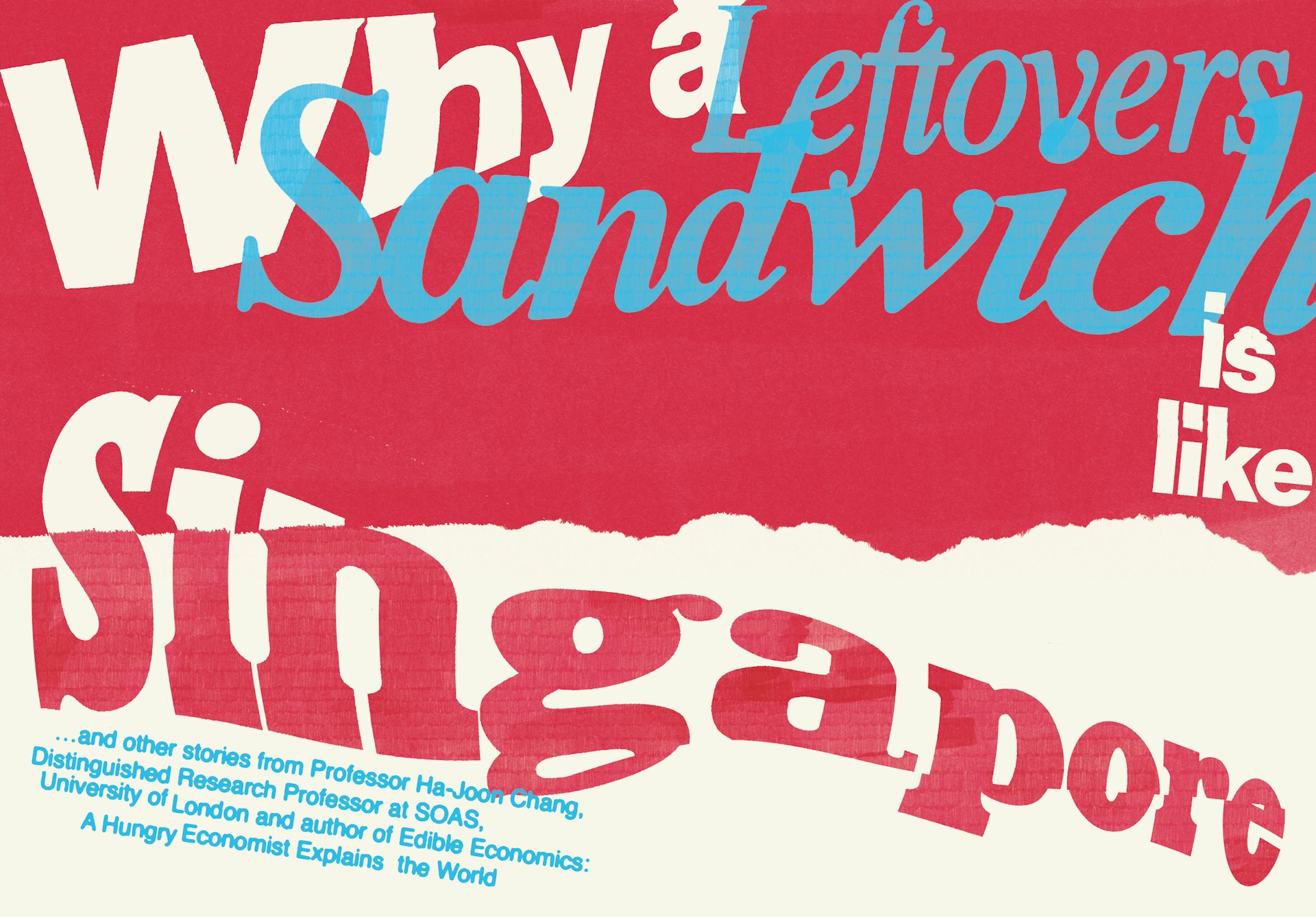
Why we need a right to food
- Text by Ian Byrne MP
- Illustrations by Liam Johnstone
For millions this country is broken.
The soaring cost of living has driven up poverty with almost 1 in 5 (18%) of households in the UK now experiencing food insecurity and more than half a million children dropping below the poverty line in the last year.
Failure to act will see the continued manifestation of such hardship in record foodbank use and rising homelessness. Knock-on effects such as increased pressure on public services, and longer-term scarring impacts on children, productivity and communities will also store up further problems for the future.
A Right to Food enshrined in law is desperately needed so that everyone, including all children, are legally protected from hunger. In one of the richest countries in the world you would think this would be a given but political choices have led us to this dire situation of hunger on a scale not seen since the last century.
Right to Food Week 2023 is bringing people together from across the UK to ensure that our collective demand for a legal Right to Food is heard. We need to empower those who feel they haven’t a voice to raise up and shout out about the injustice of hunger which is a political choice. In the words of the great Nelson Mandela: “Like slavery and apartheid, poverty is not natural. It is man-made and it can be overcome and eradicated by the actions of human beings."
Who's really paying for the cost of living crisis?
Find out more

The Right To Food Campaign is urging Government to end food poverty by delivering on five key demands:
1. Universal free school meals. No child should go hungry and the Right To Food campaign is calling for free school meals for every child.
2. Government to state how much of minimum wages and benefits (on which people are expected to live) is for food. The Right To Food Campaign wants Government to reveal how much money is factored in for food when setting minimum/living wages and benefits.
3. Independent enforcement of legislation. Right To Food legislation must be accompanied by oversight and enforcement powers granted to a new independent regulatory body that will hold Government to account.
4. Community Kitchens. The Right To Food Campaign believes Community Kitchens provide a workable solution to food poverty. Government should fund dining clubs and ‘meals-on-wheels’ services for the elderly and vulnerable, school holiday meals for those most in need and cookery clubs for the wider community.
5. Ensured food security. Government must ensure food security and take this into account when setting competition, planning, transport, local government and all other policy.
These five core demands of our campaign are not just random suggestions, but rather they are the actions that experts believe Government must take in order to eliminate hunger and the need for foodbanks.
How food banks are weather the cost of living crisis
Find out more here

Just this week the Trussell Trust has announced that half of working families claiming Universal Credit ran out of food in the past month. This is down to a completely inadequate social security system that is having a devastating impact on millions of people. The cost of essentials, like food and bills, is at least £120 a week, yet the basic rate of Universal Credit is just £85 a week for a single adult. This is why Government having to state publicly how much of benefits (on which people are expected to live) is for food is one of the key demands of the Right To Food campaign.
And if we take our demand for Universal Free School Meals for all schoolchildren, there are 900,000 children in England living in poverty who are not currently eligible for Free School Meals. Families really struggling with the cost of living crisis is having an awful impact on children who are not getting the food they need to grow up healthy. This is why our campaign is calling for the Government to extend Free School Meals to all children.
The Right To Food campaign has gone from strength to strength over the last 24 months. Through collaboration with councils, trade unions, football clubs, faith leaders, community groups, health workers, local businesses, politicians, and many more, the Right To Food campaign has grown and placed pressure on the Government through a range of collective action and solidarity, including:
• 25 Right to Food cities and towns: Since Liverpool became the first ‘Right to Food City’ in the UK in 2021, there are now 25 areas signed up, and millions of people who can say they live in a Right to Food city. Right to Food cities and towns now include: Liverpool, Liverpool Combined Authority, Manchester, Greater Manchester Combined Authority, Rotherham, Brighton and Hove, St Helens, Preston, Lancaster, Durham, Newcastle, Portsmouth, Totnes, Coventry, Sheffield, Birmingham, Haringey, Brent, Lewisham, Lambeth, Hackney, Southwark, Islington, Cumberland and Southampton
• 53,000 people: signed a petition to Parliament demanding a Right to Food in UK law.
• 59 MPs: signed a Motion in Parliament calling for a Right to Food, whilst 42 MPS signed a Motion in Parliament supporting Right To Food Week 2023.
• Downing Street: campaigners from across the country came to Downing Street to hand in our open letter demanding a Right to Food and our key campaign requests.
• Trade Union Congress in 2021, 2022 and 2023: passed motions calling for the right to food to be enshrined in law
• The Environment, Food and Rural Affairs Committee in Parliament: has called on the Government to facilitate a country visit of the United Nations’ Special Rapporteur on the Right to Food to the UK by the end of this year.
Following a week of action to press for a legal Right to Food in Parliament and our communities, Hunger Marches are being held this weekend in Belfast, Liverpool and London to raise awareness of the hunger epidemic across our nations and the fight for a Right To Food. Our fight will continue for as long as it is needed because the people suffering deserve nothing less than systemic change.
Ian Byrne MP is the Parliamentary lead for the Right To Food Campaign.
This story is published in partnership with our sister magazine Sandwich Magazine. You can buy the latest issue here or follow Sandwich on Instagram.
Enjoyed this article? Follow Huck on Twitter and Instagram.
